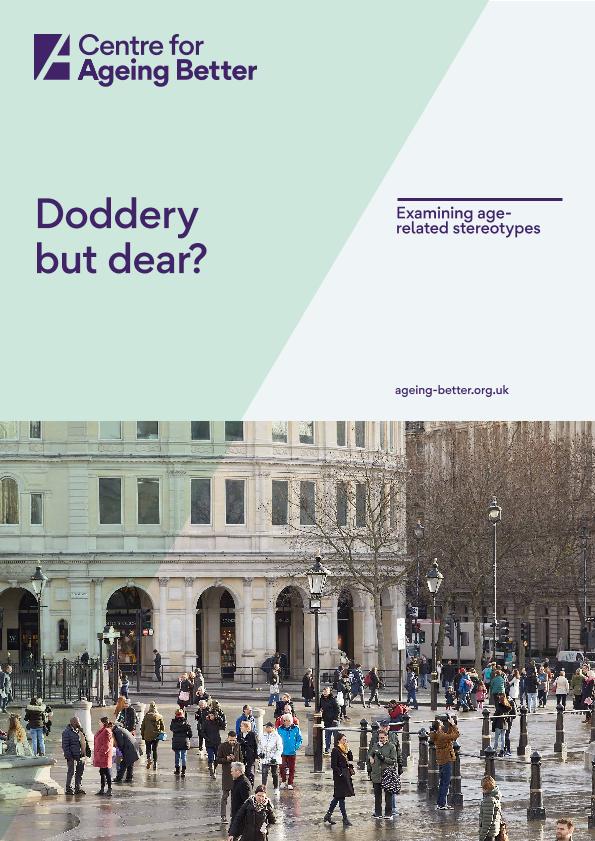Doddery but dear? : examining a 3 ge-related stereotypes

Contenido multimedia no disponible por derechos de autor o por acceso restringido. Contacte con la institución para más información.
| Tag | 1 | 2 | Valor |
|---|---|---|---|
| LDR | 00000cam a22000004b 4500 | ||
| 001 | MAP20200020134 | ||
| 003 | MAP | ||
| 005 | 20230908091228.0 | ||
| 008 | 200616s2020 gbr|||| ||| ||eng d | ||
| 040 | $aMAP$bspa$dMAP | ||
| 084 | $a93 | ||
| 245 | 1 | 0 | $aDoddery but dear?$b: examining a 3 ge-related stereotypes |
| 260 | $aLondon$bCentre for Ageing Better$c2020 | ||
| 300 | $a20 p. | ||
| 520 | $aThis paper is based on a literature review conducted by Dr Hannah J Swift and Ben Steeden, School of Psychology, the University of Kent, summarising what existing research tells us about the role and impact of language and stereotypes in framing old age and ageing in the UK. Broadly speaking when we use the term old age' or older person' we are referring to those aged 50 and over. However the notion of who is old is a contested idea, which is reflected by the fact that many of the studies referenced throughout this report use differing age bands when talking about older people'. | ||
| 650 | 4 | $0MAPA20100044407$aPersonas mayores | |
| 650 | 4 | $0MAPA20080568771$aEnvejecimiento | |
| 650 | 4 | $0MAPA20080597283$aInvestigación social | |
| 650 | 4 | $0MAPA20130013480$aDiscriminación por edad | |
| 650 | $0MAPA20210021831$aSesgos | ||
| 651 | 1 | $0MAPA20080638290$aReino Unido | |
| 710 | 2 | $0MAPA20200014089$aCentre for Ageing Better |

